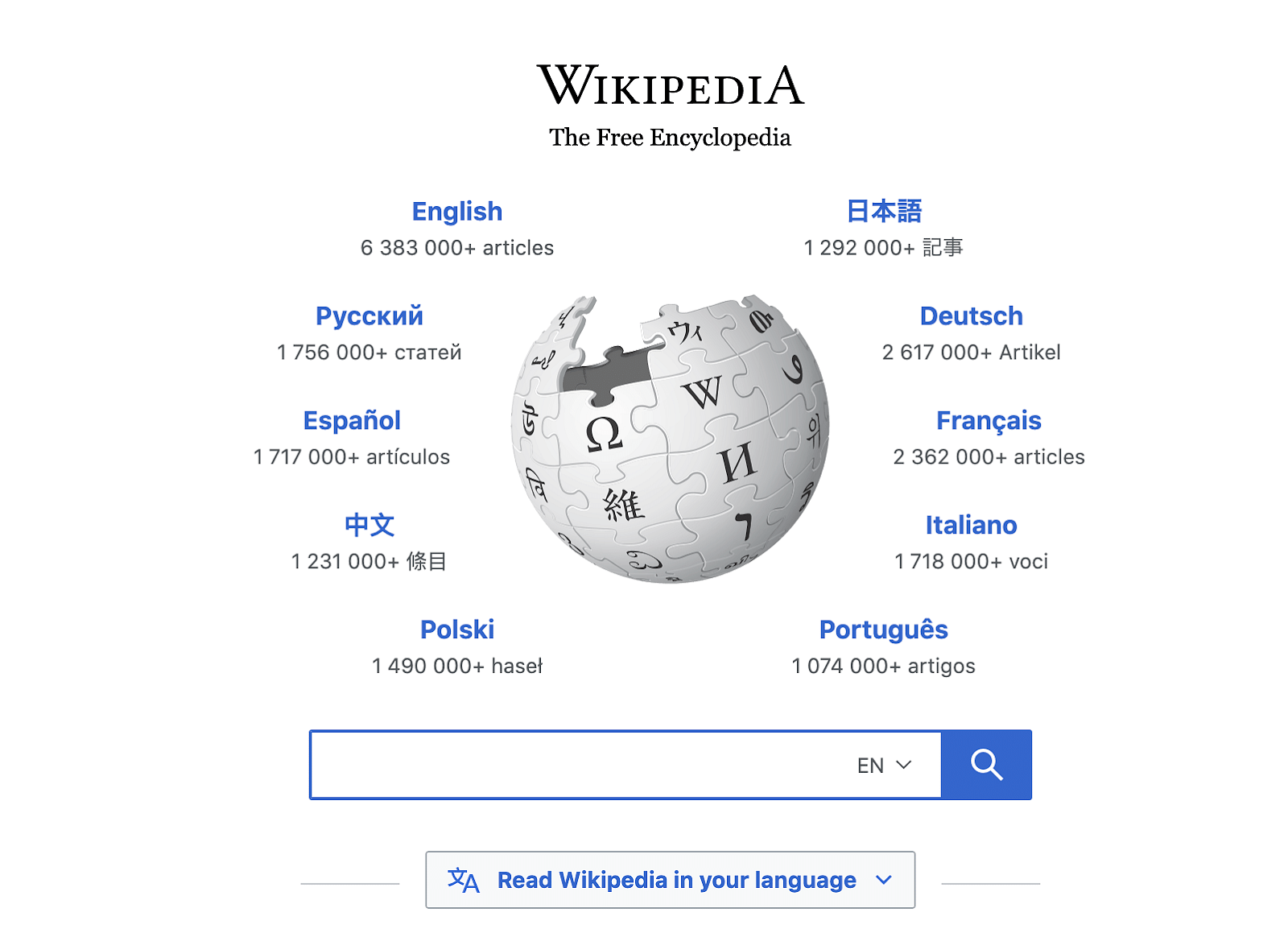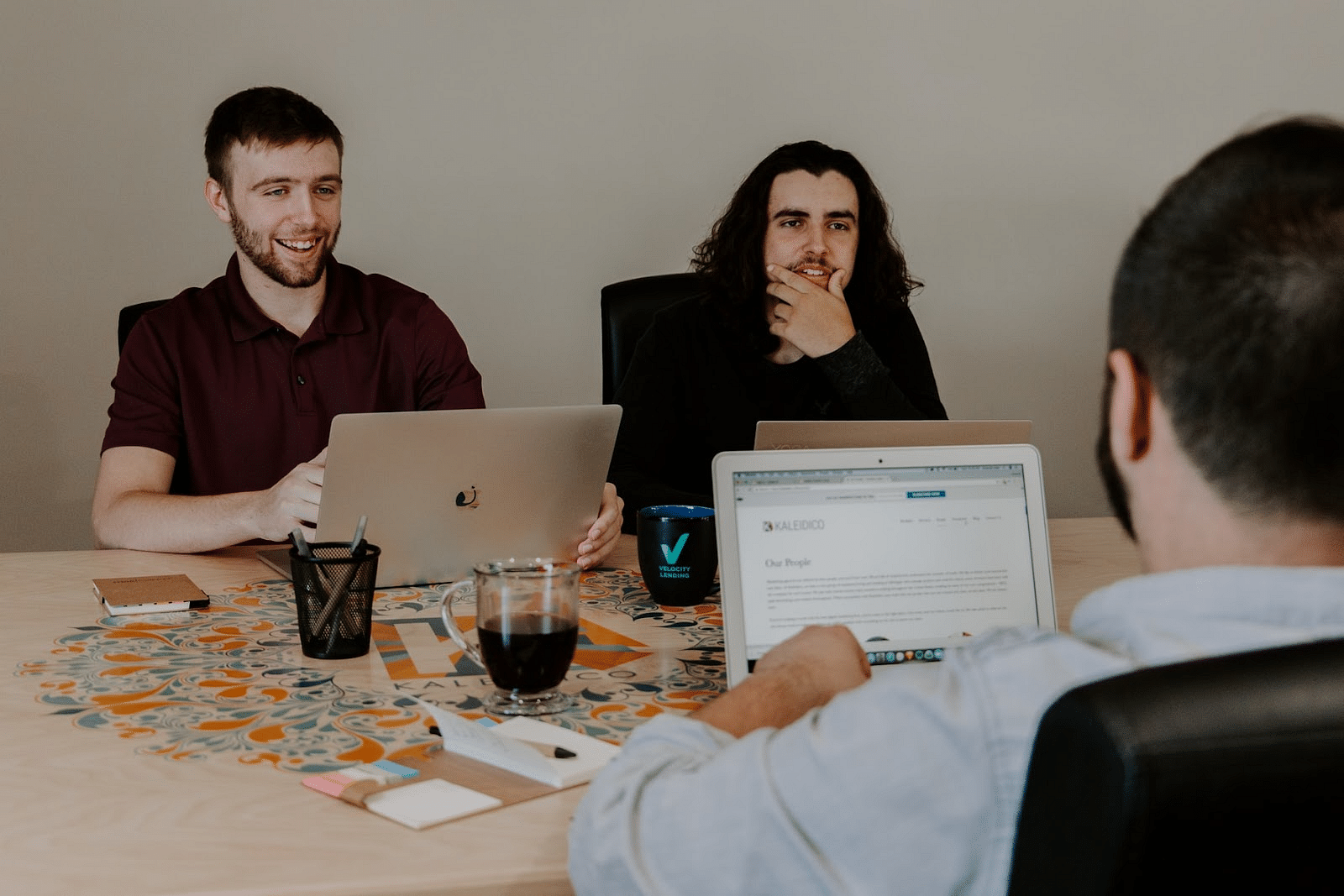
Building your reputation and getting noticed through the world’s greatest library, Wikipedia
By Jim James, Founder EASTWEST PR and Host of The UnNoticed Entrepreneur.
Josh Greene is the founder and Chief Executive Officer (CEO) of The Mather Group. He’s also known as the Pixel Master, amongst many other things. Joining all the way from Virginia in America, he talked about Wikipedia and how he helps entrepreneurs get noticed in the new episode of The UnNoticed Entrepreneur podcast.
Image from LinkedIn
Why Wikipedia Matters
The Mather Group, which started about five years ago, is an online reputation agency. They help entrepreneurs with how they’re showing up on Google and Wikipedia and make sure that they’re getting out the message that they’d like to get out there in the world.
The nice thing about Wikipedia is it’s designed as a repository for the world’s knowledge. And it’s gone a long way towards meeting that goal.
Screengrab from Wikipedia
As people are familiar with, a Wikipedia page powers a lot of different things — it powers the Google knowledge panel and it’s used on YouTube. It’s almost always in the top three search rankings.
What Wikipedia says about your business is going to have a huge impact on what the world thinks about your business. It’s really helpful, at the very least, to understand what’s going on underneath the hood at Wikipedia, which is the world’s greatest library.
The Challenges
There are a lot of people who are trying to work within and without the Wikipedia system to influence what Wikipedia says about them, their business, or the category that they’re in.
According to Josh, one of the big challenges for entrepreneurs is the idea that anyone can edit Wikipedia and that you don’t have total control over what someone might say over you in Wikipedia.
The other thing that’s very frustrating for him is that while anyone can edit Wikipedia, there are actually several rules. And many of those are the opposite of what someone running a business might want them to be in terms of how they portray themselves.
He also pointed out that not everyone can get a page on Wikipedia. If you’re a relatively small company, you’re probably better off not trying to do that. Instead, interact with Wikipedia in a different way.
Wikipedia has a number of thresholds for new pages. One, you have to have an editor who’s interested and decided to write about you. But even beyond that, you have to meet Wikipedia’s definition of notability, which is very different from how entrepreneurs might define it.
You need a great deal of third-party press coverage where it’s not done with you. It’s not that you’re quoted in it — it needs to be written from a third-party perspective, which is not all that common. Oftentimes, it’s also frustrating because what you think of a good press is not what Wikipedia considers good press. That can pose some challenges.
Therefore, if you’re a relatively smaller company, there are better ways to engage than trying to set up your own page.
Editing Wikipedia Pages
Basically, Wikipedia is a giant social network of tens of thousands of people who volunteered to be editors and who added all sorts of different things on Wikipedia. Some people might just edit articles on sports in their free time, while others might edit articles about politics. Others might focus on punctuation, grammar, and citations.

Image from Unsplash
You can find almost anything that you’re interested in and there’s an area in Wikipedia where you can contribute to.
However, this also comes with, essentially, all the headaches that you’d expect from a community of tens of thousands of people trying to agree on what one version of the world’s encyclopedia should be. It’s one of its greatest strengths and weaknesses: You have a huge diversity of views and you also have a huge diversity of views about what Wikipedia should be and what appropriate content is.
There are different levels of editors in terms of administration and approval of new pages. But anyone can edit any page. Oftentimes, it depends on the strength of the argument that you’re making, about what rules you’re following, and which should be applied in terms of whether your edit sticks or doesn’t and of whether or not you have to argue about it.
There’s a lot to consider when you’re editing. Some pages are very popular to edit while other pages rarely get edited.
One of the good things about Wikipedia is that there’s a ton of training materials on Wikipedia itself on how you can be a contributor and an editor, which are words that might get used interchangeably. What he recommends if you’re interested in your page is to not make that the very first page that you get involved in.
There are all sorts of rules about what you can do with content that you’re involved in. In addition to that, usually, the first time you edit Wikipedia, you’ll undoubtedly won't be able to follow some of the rules that the platform has. For instance, entrepreneurs love marketing language. But Wikipedia very much wants neutral language.
As a software, Wikipedia will actually recommend pages that you can edit to get started if you sign up to be an editor. It’s a great way to understand whether or not this is something that you want to be doing.
When you first start out, Wikipedia will ask you if you want to edit. Then the software or the Artificial Intelligence (AI) will present some of the pages that need help. They might be a new page. There might be grammar issues. There’s a whole community around editing that will help you get started if you want to actually become an editor.
Whether or not it’s something that you want to do depends on what your interests are and whether or not you want to be involved in the Wikipedia editing community.
How The Mather Group Helps
Most entrepreneurs think less proactively about editing other people’s content. They’re rather selfishly thinking about how they can build awareness and about all the benefits of Wikipedia for brand reputation.
How then can companies look at Wikipedia? How does The Mather Group help?
Image from Unsplash
According to Josh, there are three main different areas to look at.
-
One is, if your company doesn’t currently have a page and you are, for instance, under 20 employees. In 99% of the cases, you will have a very difficult time getting a page of your own setup. There are many things that have a far higher return on investment (ROI) than trying to set up your own Wikipedia page.
-
Second is, if there’s a page about your company and you want to evaluate it and see if it’s doing a reasonable job of representing your company, and then make some decisions. It could be that it’s pretty good and you don’t feel like it needs to be changed from a marketing standpoint. Or it could have tons of controversy, in which case, you may need to actively get involved. Negative content tends to go on and on on Wikipedia because people who are aggrieved use Wikipedia for that reason and they tend to be fairly verbose.
-
The third one is one of the hidden opportunities in Wikipedia. Most companies are participating in a category, and if you’re a relatively unnoticed company (for example, you might be doing some thought leadership around your area like business process automation). Usually, Wikipedia will have a page around business process automation. Most of those category pages are under-resourced or under-cited. If you’re doing thought leadership that helps move your field forward, it’s really an opportunity where your content could be useful to Wikipedia and help build the world’s knowledge.
The third area is something that’s an opportunity for a business owner, compared with the second area wherein your page has a lot of negative content. The second entails more of a reactive approach — it demands trying to fix things.
Rectifying Wikipedia Content
The second thing that Josh pointed out can be considered reputation management or crisis management. When asked about how his company helps people rectify what’s been said on Wikipedia, he shared that Wikipedia has a ton of great resources on how to do that.
But one thing he mentioned is that every single Wikipedia page has a “Talk” tab in the top left part. This is where people talk about the bigger topics on a particular page. If you’re making a small edit, you shouldn’t necessarily post something there. But if you wanted to say that certain six paragraphs about a controversy should really be just a line or two, you could say something on the Talk page. That is the officially approved place.
As a company, you can ask the Wikipedia community at large to fix inaccuracies through it. It’s a great place to start if there’s negative content about you on Wikipedia.
Getting Yourself Cited
Talking about how you can use your thought leadership to get cited, Josh said that it has a similar mechanism. The Talk page is a great place to say, “Hey, we’ve done some research in the industry. It would help build out this page” or “Here’s some suggested content for this page.”
Usually, every Wikipedia page is highly cited. One of the key principles of this platform is that it’s fact-based and verifiable. You can go back to the source for that information.

Image from Unsplash
If you have an article written about you in a trade publication that covers some of that material, you can go to the Talk page and say, “Here are a couple of lines about new developments in business process automation. Here are the citations about it.”
Then, someone who’s editing that page will go through that and add that in. It’s sort of a way to be helpful to the community. You don’t have to edit the page yourself. You can say something on the Talk page and make suggestions.
If someone moves it live onto the page, you’ll have that citation linking back to either your site or press coverage about you. Both of which are very useful for a variety of reasons.
This is very reassuring because you don’t have to sign up and be a contributor and go through all of the mechanics of that. Additionally, the citations will also go back to you.
The Importance of Wikipedia Monitoring
Wikipedia plays a role in your overall reputation strategy. Because all of these Wikipedia pages get syndicated, too.
For most companies, Josh said that it’s important to be aware of it and monitor it. There are a bunch of tools that can help you see if you’re getting mentioned. With that, you can think about how you want to react to it.
The first step is simply awareness. If you don’t have a page and you’re not showing up on Wikipedia, in one sense, you don’t have anything to do specifically. There’s nothing to mitigate or fix.
If you’re on Wikipedia and monitoring it — just like how you’re monitoring your search engine optimisation (SEO) results or your press coverage — it’s generally a good idea because it’s one of those things that has both positive and negative impacts.
For a lot of companies, it’s just about being aware that Wikipedia is just there and about keeping an eye on it in case something either positive or negative happens. Because then you can figure out what the next part of your plan is — what your next steps or approaches are.
The level of involvement really depends on the specifics of your situation. Some companies just attract attention. Others might be a little bit more under the radar.
A lot of what Mather Group does is education. They help people understand what is possible and not. Then, they provide ideas for implementation and help clients with that. Many times, what companies need is just education — an understanding of what they can and can’t do. They also help them to be on the path of becoming a good community member.
On Getting Noticed
Josh considers his business to be fortunate because it’s typical for a lot of consultancies to be referral-based businesses. You talk to a lot of people and good things come out of that.
They also do a weekly newsletter on Wikipedia and SEO. This has been good for them in terms of keeping themselves in front of people. They do a lot of content around what you can do as a company with Wikipedia from a communication standpoint.
They also came out with a book called “Wikipedia for Business.” It’s been useful in getting awareness out — that there are things that you can do with Wikipedia from a corporate perspective.

Screengrab from Amazon
The key thing that Josh would recommend is doing research instead of jumping right in. As an entrepreneur, it’s easy to see an edit button and figure you’re just going to solve a problem. However, he strongly suggests that you do some research first before you do that. Because it's a huge encyclopedia writing. You don’t want to be trying to edit it before you really understand what it’s all about.
To learn more about Josh and the Mathers Group, visit https://themathergroupllc.com.
This article is based on a transcript from my podcast The UnNoticed Entrepreneur, you can listen here.
Cover image by Ann H on Pexels




